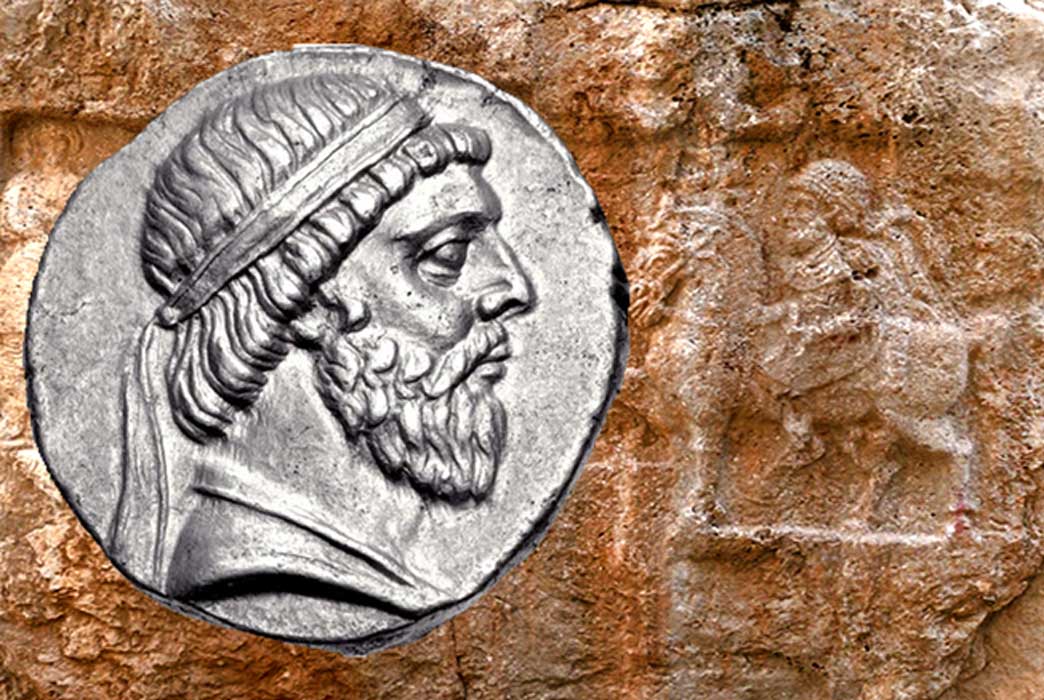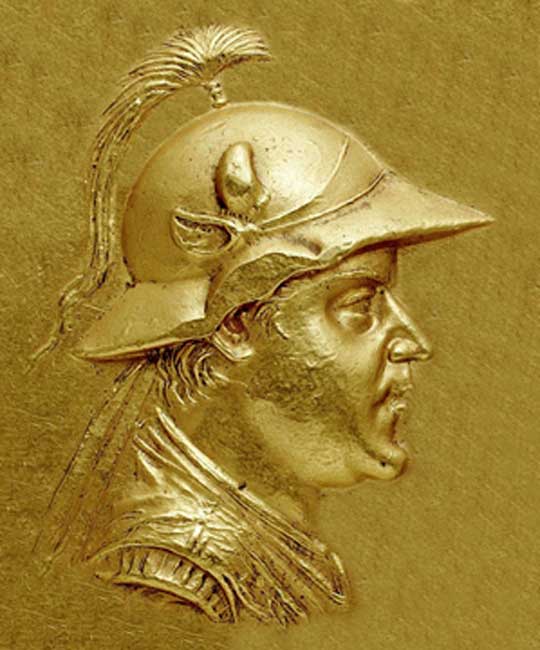
Mithridates Stalks His Prey, and Strikes a Killing Blow: The ‘King of Kings’ of Ancient Iran
Mithridates exhibited qualities that most kings rarely have: experience and maturity. Even Phraates passed over his own sons for his qualified brother to be next in line. Mithridates I (r. 171-138 BCE), like Phraates, Mithridates understood that a king could retain his power only as long as the people and nobles were treated fairly. To abuse such power at the expense of his subjects would be devastating. What is certain is that Mithridates, King of the Parthian Empire, was a leader who left a legacy of conquests—starting with Bactria.
Mithridates effectively picked up where his brother Phraates left off. He undoubtedly inherited a kingdom that was solid and sound in both its economic and military apparatus. Mithridates took the foundation established by Arsaces and turned it into an empire. He marched east, gobbling up lands and kingdoms, such as Bactria, and continued until Parthia’s border touched India. Afterwards, he turned his attention toward Mesopotamia and conquered it with ease. His achievements consolidated the future of Parthia’s power for centuries to come.

Roman, Seleucid, and Parthian Empires in 200 BC (Talessman/CC BY-SA 3.0)
A Target Ripe for the Picking
Mithridates’ invasion of the Greco-Bactrian Kingdom took place sometime between 171-165 BCE, after the Greco-Bactrians had overextended their borders due to constant warring with their neighbors. Roman historian Justin states:
“Almost at the same time that Mithridates ascended the throne among the Parthians, Eucratides began to reign among the Bactrians; both of them being great men. But the fortune of the Parthians, being the more successful, raised them, under this prince, to the highest degree of power; while the Bactrians, harassed with various wars, lost not only their dominions, but their liberty; for having suffered from contentions with the Sogdians, the Arachosians, the Drancae, the Arei and the Indians, they were at last overcome, as if exhausted, by the weaker Parthians.”
Justin’s passage also points out that the Parthians were the weaker of the two. However, looks can be deceiving. Parthia was indeed weaker, but Greco-Bactria had overextended its military operations towards the south and east. To make matters worse, the Greco-Bactrian kingdom became even weaker when a coup d'état orchestrated by Eucratides successfully overthrew the Euthydemids dynasty in Bactria.

Gold 20-stater of Eucratides, the largest gold coin ever minted in Antiquity. The coin weighs 169.2 grams, and has a diameter of 58 millimeters. It was originally found in Bukhara, Uzbekistan, and later acquired by Napoleon III. (Gallica/Public Domain)
Eucratides’ Blind Spot
Eucratides’ takeover divided Greco-Bactria considerably and eliminated it from being a major power. Justin mentions, “the Sogdians, the Arachosians, the Drancae, the Arei” all revolted due to Eucratides’ power grab. The Greco-Bactrians were strong, but the division caused by Eucratides invited Mithridates in.




